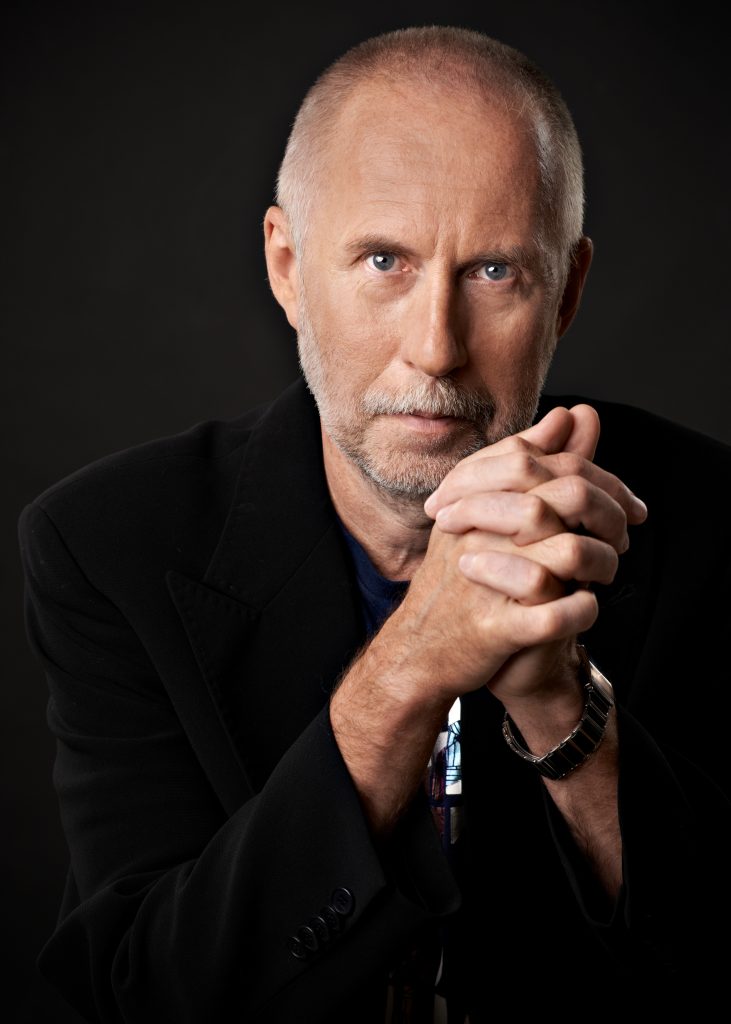Composer, ECU member since 1982Born on 18.05.1955
Peeter Vähi’s music is characterized by broad-minded stylistic versatility and listener-friendly sound. In his works there can be found meditative-philosophical moods and motoric movement, archaic and contemporary, also pop music elements. Being profoundly intrested in traditional Oriental music, which the composer has studied deeply, Vähi often obtains his musical material from the East, using skillfully exotic instruments. Besides combinig Eastern and Western musical thought Vähi has also drawn his inspiration from early music. He also uses electroacustic music both in his small scale works and large scale compositions.
Vähi has composed works for symphony orchestra, choirs, chamber ensembles, electronic and ethnic instruments. His most important works are oratorio Mary Magdalene Gospel (2011), an African initiation rite In the Mystical Land of Kaydara for narrator, vocal soloists, two choirs and symphony orchestra, percussion concerto Call of Sacred Drums (2008), To His Highness Salvador D (1989) and Mystical Uniting (1991) for chamber ensemble, Supreme Silence (1997) for mezzo soprano, male choir and handbells, flute concerto Chant Of The Celestial Lake (1999), cantata Green Tārā (2000) for female soloist, female choir, trombones and percussions and A Chant Of Bamboo (2001) for shinobue-flute and chamber orchestra.
Peeter Vähi has studied accordion and double bass, in 1974, he graduated from Heino Eller Tartu Music School in music theory. In 1974–1980, Vähi studied composition with Prof. Eino Tamberg at Tallinn State Conservatoire. At the same time Vähi played keyboards in jazz-rock band Uus Generatsioon (1978–1980) and pop band Vitamiin (1978–1990), where he also was an artistic director and song writer.
Being an active figure in Estonian musical life, Vähi has worked as a concert producer of the State Concert Institute Eesti Kontsert in 1991–2000, freelance record producer and author of music programs in Estonian Radio. He is the artistic director and founder of music festivals Orient and Glasperlenspiel. He has also organized several other festivals, such as the Arvo Pärt Festival (1992, 1995), Estonian Culture Days in Germany (1995) and Japan (1997). In 2001, Vähi founded the record company Estonian Record Productions (ERP) where he holds the post of artistic director. Vähi was a composer-in-residence at the state concert institute Eesti Kontsert for the season 2014/2015. From the year 2010, he is the guest lecturer on music of Asian peoples in the Estonian Academy of Music and Theatre. Vähi is the author or co-author of more than 100 radio and TV broadcasts, articles and books.
Vähi has been the member of the board of President of the Republic’s Cultural Foundation (2001–2008) and the president of Drikung Kagyu Ratna Shri Centre (1992–2005). He is a member of the board of Estonian Composers’ Union (since 1993), the vice-chairman of the council of the Estonian Institute of Buddhism (2002–2014) and a full member of Estonian Academic Oriental Society.
Vähi’s music has been performed by European, Asian and American orchestras (including Japan Philharmonic Orchestra, European Union Chamber Orchestra, Estonian National Symphony Orchestra, Tallinn Chamber Orchestra, Shanghai Symphony Orchestra, Taipei Philharmonic Orchestra, Detroit Symphony Orchestra, Vienna Tonkünstler Symphony Orchestra, Latvian National Symphony Orchestra, WDR Symphony Orchestra (Cologne), MDR Symphony Orchestra (Leipzig), NDR Symphony Orchestra (Hamburg), State Academic Chamber Orchestra of Russia (Moscow Chamber Orchestra), Gothenburg Symphony Orchestra), several well-known choirs (Tokyo Philharmonic Choir, Estonian National Male Choir, Girls’ Choir Ellerhein, State Choir Latvija, Shanghai Opera House Chorus, Riga Dom Cathedral Boys Choir) and ensembles (Hayashi Eitetsu Ensemble, Hortus Musicus, Arsis Handbell Ensemble, duo Mari & Håkon Samuelsen, Raschèr Saxophone Quartet) and many outstanding performers like Gidon Kremer, Anders Paulsson, Kalle Randalu, Lauri Väinmaa, Martin Kuuskmann, Maarika Järvi, Andres Uibo, Heiki Mätlik et al, also ethno musicians (Sevara Nazarkhan, Hiroyuki Koinuma). In recent years, Vähi has been in close co-operation with musicians from Tibet, India, Japan, and other parts of Asia. His works have been conducted by Neeme Järvi, Kristjan Järvi, Eri Klas, Andres Mustonen, Aivar Mäe, Vello Pähn, Risto Joost et al.
In addition to the conventional venues, concerts of Vähi’s music have taken place on the open-air stage of World Exhibition EXPO 2000 (Hannover, Germany), in Roerich Museum (Moscow) and in the Royal Palace of Sweden. His music has been performed at the Estonian Song Celebrations, in the White House in Washington DC, in a Japanese Buddhist Temple, at the 50th anniversary celebrations of UNESCO in Strasbourg and at the Luzhniki Arena in Moscow.
Vähi’s music is available on nealry 70 sound records (released by record companies Antes edition, Erdenklang, CCn’C, Universal, Warner Classics, Finlandia Classics and others), including 12 author CDs, like “The path of the heart of Asia” (Erdenklang, 1992), “Sounds of the Silver Moon” (Forte, 1996), “Supreme Silence” (CCn’C, 1998), “The path of mantra” (Erdenklang, 2001). Vähi’s works have been published by Erdenklang Musikverlag, Eres Edition, Edition 49, ERP, CultureWare Music Publ, and Maren Musikverlag.
Peeter Vähi has been awarded the Estonian Annual Music Prize (1986 and 1990), Annual Prize of Endowment for Music of Culture Endowment of Estonia in 1998, composer prize of Estonian Music Days Festival 2010, Baltic Assembly Prize for the Arts for the oratorio “Peuangelion kata Marihamm” (2013) and The Order of the White Star 5h Class (2017).
© EMIC 2009
Updated in November 2017
